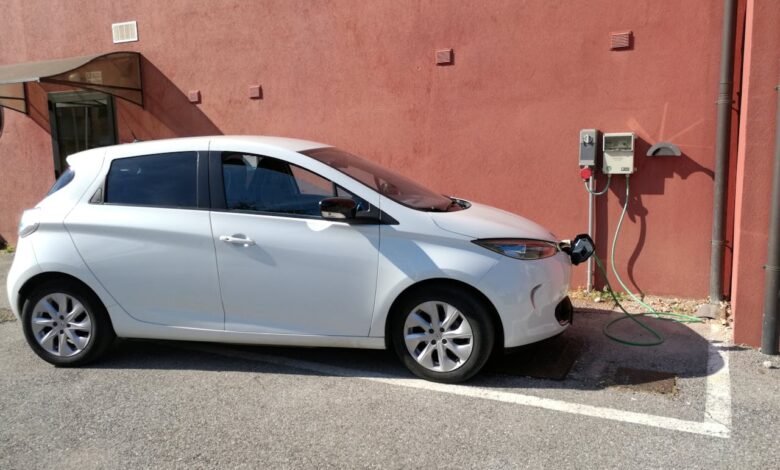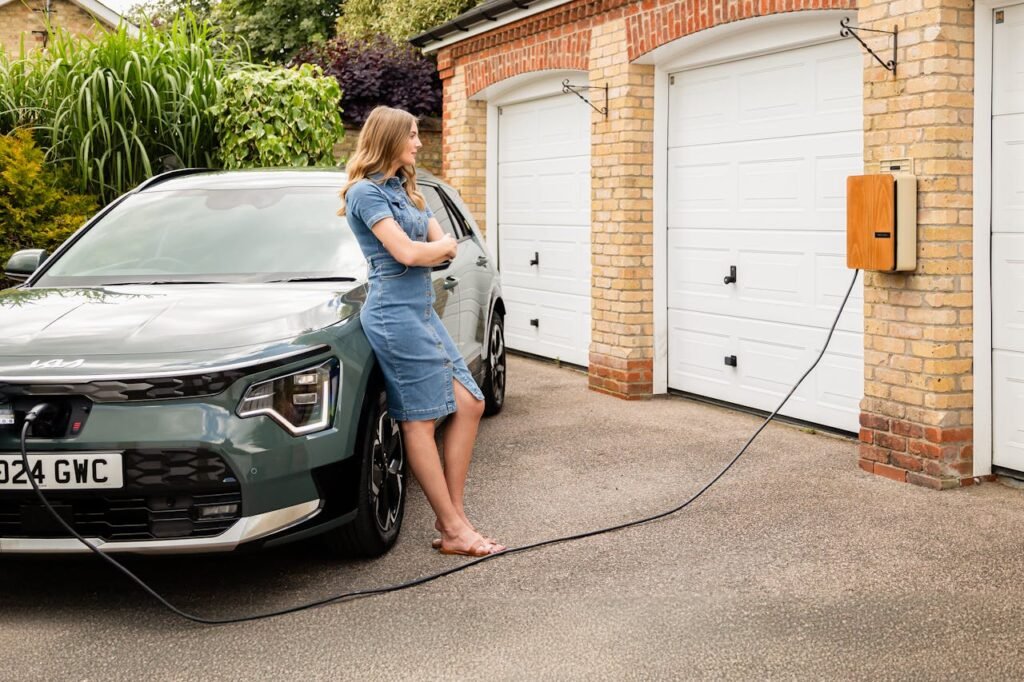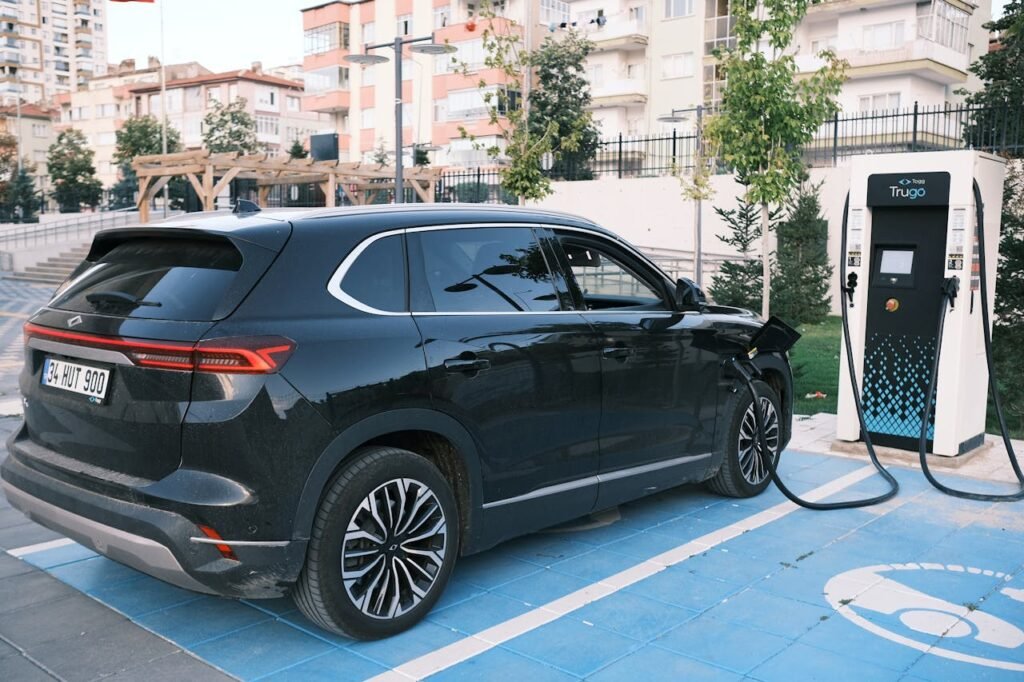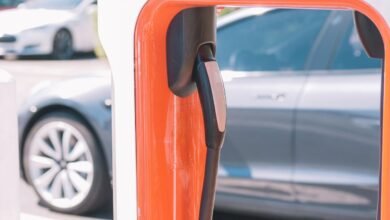Powering the Electric Revolution: How Smart Charging is Transforming Urban Mobility

As cities across the UK and the world embrace electric vehicles (EVs), the spotlight is shifting to the infrastructure that supports them. Smart charging is at the heart of this transformation, optimising energy use, reducing costs, and making urban mobility cleaner and more convenient. This blog explores how smart charging technology is revolutionising city transport, supporting the transition to net zero, and shaping the future of urban living.
1. Introduction: The Rise of Electric Mobility
The UK is racing towards a cleaner, more sustainable future, with the government’s ambitious target to ban new petrol and diesel car sales by 2030. Over 950,000 fully electric vehicles now traverse British roads, and EV registrations are growing by 40% year-on-year1. This rapid adoption is transforming urban mobility, making city streets quieter and cleaner, and reducing carbon emissions.
However, the transition to electric mobility is not without its challenges. The demand for reliable, accessible, and efficient charging infrastructure is greater than ever. This is where smart charging comes into play, offering solutions that go far beyond simply plugging in an EV.

2. What is Smart Charging?
Definition and Key Features
Smart charging refers to charging systems that use advanced technology to communicate with both the vehicle and the electricity grid. These systems can optimise charging times, manage energy loads, and even return power to the grid when needed23. Unlike conventional charging, which simply supplies electricity to the vehicle, smart charging is dynamic and responsive.
How Smart Charging Differs from Conventional Charging
- Communication: Smart chargers exchange data with the grid and the vehicle, allowing for real-time adjustments.
- Optimisation: Charging can be scheduled during off-peak hours to save money and reduce strain on the grid.
- Safety: Smart systems test connections and monitor for faults, ensuring a safer charging experience4.
- Integration: Smart charging can be integrated with renewable energy sources and smart home systems.
3. Benefits of Smart Charging for Urban Mobility
Cost Savings for Consumers
Smart charging enables drivers to take advantage of lower electricity rates during off-peak hours. In the UK, some energy suppliers offer tariffs as low as 5p per kWh at night, compared to 34p during peak times, potentially saving EV owners hundreds of pounds annually13. Specialised tariffs and government grants further reduce the cost of installing smart chargers at home or at work.
Grid Stability and Energy Management
By managing when and how EVs are charged, smart charging helps balance electricity demand across the grid. This reduces the risk of blackouts and the need for costly infrastructure upgrades23. Vehicle-to-grid (V2G) technology allows EVs to supply power back to the grid during peak demand, enhancing grid resilience13.
Enhanced Convenience and Accessibility
Smart charging systems provide real-time information on charging station availability, allowing drivers to reserve spots and plan journeys with confidence. Apps and online platforms make it easy to monitor charging progress and manage costs43.
Environmental Impact
Smart charging supports the integration of renewable energy sources, such as wind and solar, by prioritising charging when green energy is abundant. This reduces the carbon footprint of electric mobility and accelerates the transition to net zero13.
4. Smart Charging in the UK: Current Landscape
Growth of EV Charging Infrastructure
The UK’s public EV charging network has surpassed 75,000 stations, with ultra-rapid charging points experiencing the fastest growth. London leads the way, with the largest network of public chargers, while on-street charging is the most popular option for city dwellers6.
Government Initiatives and Incentives
The government offers grants for installing smart chargers at home and at work, with up to £350 available per installation1. The Electric Vehicle Chargepoint Grant supports projects in car parks, residential areas, and workplaces, helping to expand access across the country67.
Challenges and Solutions
Despite rapid growth, disparities remain in charging infrastructure, particularly in densely populated urban areas. Ensuring equitable access and addressing the needs of renters and those without off-street parking are ongoing priorities. Smart charging solutions, such as load balancing and time-of-use tariffs, help manage demand and improve accessibility.
5. Technology Behind Smart Charging
IoT and Data Analytics
Smart charging relies on the Internet of Things (IoT) to connect chargers, vehicles, and the grid. Data analytics enable real-time monitoring and optimisation of energy use.
Vehicle-to-Grid (V2G) Capabilities
V2G technology allows EVs to store and supply electricity back to the grid, turning them into mobile energy storage units. This enhances grid stability and supports renewable energy integration.
Time-of-Use Tariffs and Load Balancing
Smart charging systems can automatically schedule charging during periods of low demand, reducing costs and minimising grid strain. Load balancing ensures that multiple chargers can operate efficiently without overloading the system.

6. Case Studies and Real-World Impact
Success Stories from UK Cities
London and Bristol are leading examples of smart charging integration. London’s extensive on-street charging network supports residents without private parking, while Bristol’s ultra-rapid charging hubs enable long-distance travel and reduce range anxiety. Major supermarket chains like Tesco and Sainsbury’s have installed smart chargers at over 1,200 locations, making charging more accessible for shoppers and commuters.
Integration with Smart Cities
Smart charging is a cornerstone of the smart city ecosystem, supporting sustainable mobility and energy management. By integrating EV charging with smart buildings and urban infrastructure, cities can optimise energy use and reduce emissions.
7. Future Trends and Innovations
Expansion of Ultra-Rapid Charging
The demand for faster charging solutions is growing, with ultra-rapid chargers now available at key locations across the UK. These chargers can deliver up to 350kW, enabling drivers to recharge in minutes rather than hours5.
Integration with Renewable Energy Sources
Smart charging systems are increasingly being designed to prioritise charging when renewable energy is abundant, further reducing the environmental impact of electric mobility311.
Smart Charging for Fleets and Businesses
Businesses are adopting smart charging solutions to manage fleet operations, reduce costs, and meet sustainability goals. Workplace charging is driving EV adoption among employees, with companies reporting a 34% increase in EV use where smart chargers are available1.
8. Table: Smart Charging vs. Traditional Charging
| Feature | Smart Charging | Traditional Charging |
|---|---|---|
| Communication | Yes (with grid & vehicle) | No |
| Scheduling | Yes (optimised for off-peak) | No |
| Cost Savings | Yes (time-of-use tariffs) | No |
| Grid Support | Yes (load balancing, V2G) | No |
| Safety Features | Advanced (remote monitoring) | Basic |
| Integration | Yes (with renewables, IoT) | No |
9. Frequently Asked Questions (FAQ)
Q: What is smart charging?
A: Smart charging is an advanced system that allows electric vehicles to communicate with the grid, optimising charging times and energy use for cost savings and grid stability23.
Q: How does smart charging save money?
A: By scheduling charging during off-peak hours when electricity rates are lower, smart charging can significantly reduce costs for EV owners.
Q: Is smart charging safe?
A: Yes, smart charging systems include advanced safety features such as remote monitoring and automatic connection testing.
Q: Can smart charging support renewable energy?
A: Absolutely. Smart charging can prioritise charging when renewable energy is available, reducing the carbon footprint of electric mobility.
Q: What are the benefits for the grid?
A: Smart charging helps balance electricity demand, prevents blackouts, and supports the integration of renewable energy sources.
Q: How is the UK supporting smart charging?
A: The UK government offers grants for smart charger installation, promotes time-of-use tariffs, and is expanding public charging infrastructure.
10. Conclusion: The Path Forward
Smart charging is more than just a technological innovation—it is a critical enabler of the electric revolution. By optimising energy use, reducing costs, and supporting grid stability, smart charging is transforming urban mobility and helping cities move towards a cleaner, more sustainable future. As the UK continues to expand its charging infrastructure and embrace new technologies, smart charging will play a central role in shaping the cities of tomorrow.
With ongoing investment, innovation, and collaboration, the vision of a zero-emission urban transport system is within reach. Smart charging is not just powering electric vehicles—it is powering the electric revolution.



